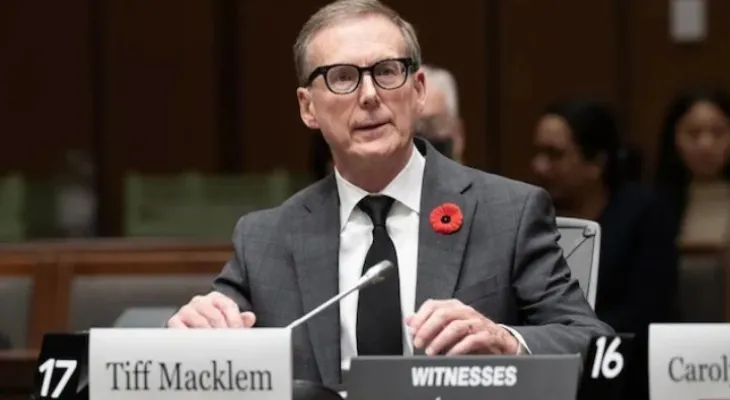Search here
Newspaper
Search here

Arab Canada News
News

Published: October 31, 2023
Bank of Canada Governor Tiff Macklem said that fiscal policy and monetary policy are moving in opposite directions, making it difficult to reduce inflation.
Simply put, fiscal policy is the policy by which the government uses its income (taxes) and government expenditures. Monetary policy, on the other hand, is the policy through which the central monetary authority of the state, i.e., the central bank, controls the money supply.
Macklem appeared before members of the Parliament on the Finance Committee in the House of Commons on Monday following the Bank of Canada's recent decision on the interest rate and quarterly economic estimates.
Responding to a question from Conservative MP Gajraj Singh Hallan, Macklem said that government spending conflicts with the central bank's efforts to reduce inflation.
The governor also said that according to federal and provincial budgets, total government spending next year will grow faster than the supply in the economy, increasing inflationary pressures.
He added that it would be helpful if monetary and fiscal policies moved in the same direction.
But at the same time, the governor said it is also important to compare Canada's fiscal situation with other countries.
The initial increase in prices during 2022 is mainly due to global conditions, including supply chain disruptions and Russian aggression against Ukraine.
However, government spending was also under scrutiny, as the central bank also pointed to domestic inflationary pressures.
Starting from March 2022, the Bank of Canada sharply raised interest rates to curb spending and reduce inflation.
Given some upward trend in the economy, the Bank of Canada kept the interest rate steady at five percent last week but also left the door open for further rate hikes if inflation remains high.
The Bank of Canada expects the country's annual inflation rate, which reached 3.8 percent in September, to drop to 2 percent in 2025.
Comments